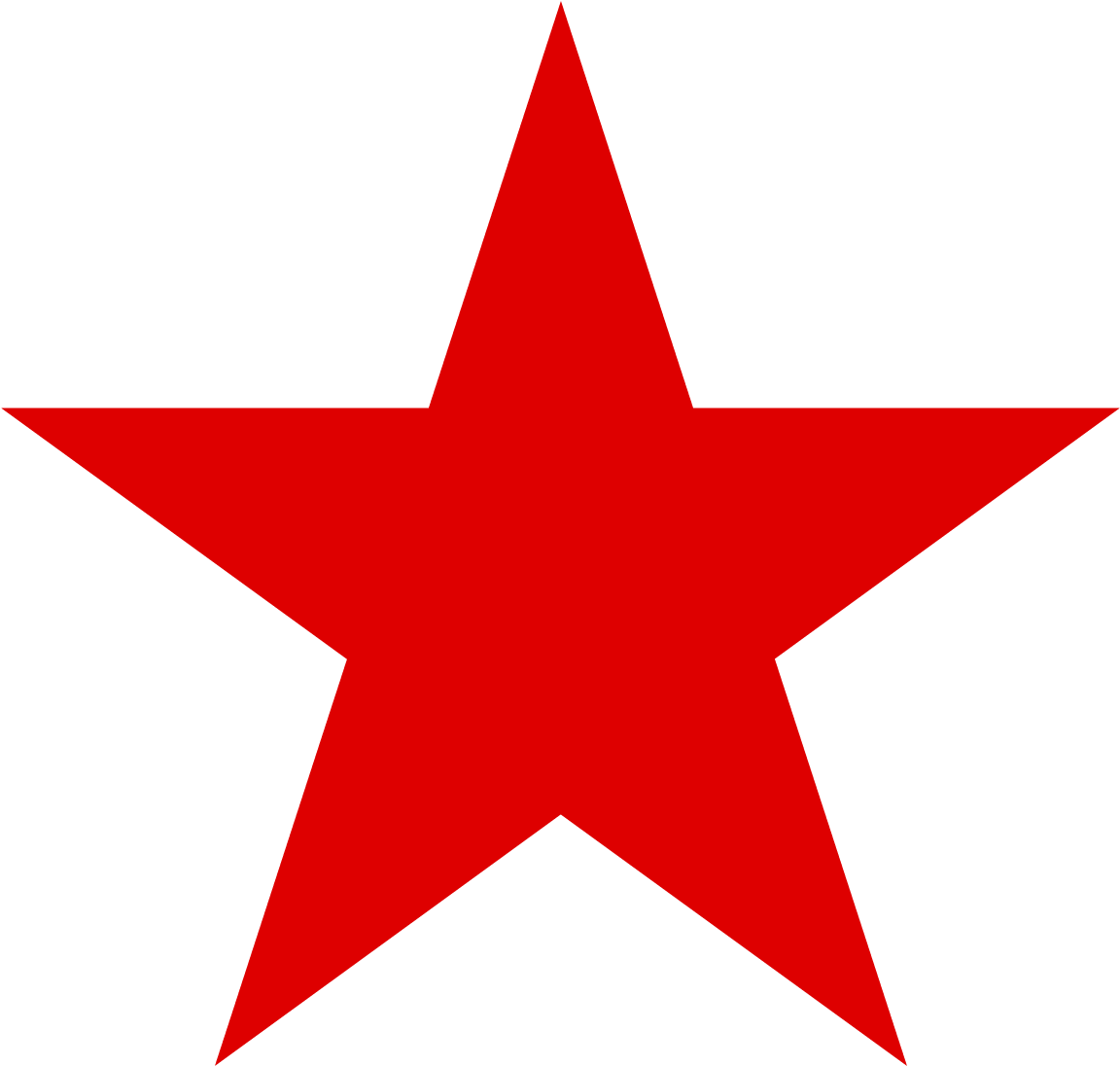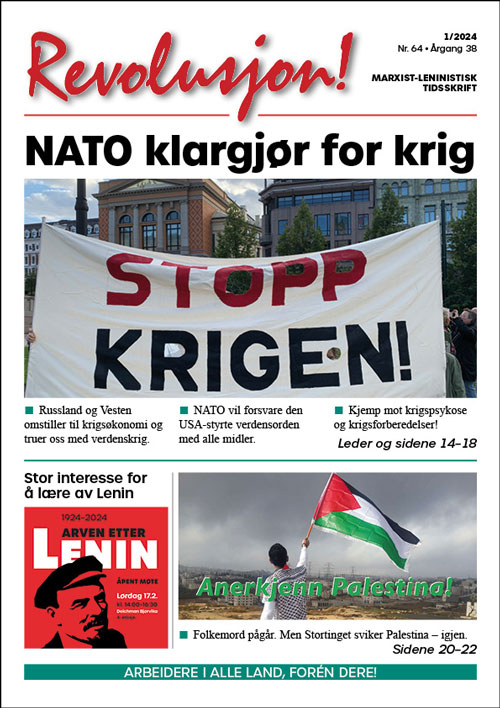Red and green lights simultaneously are normally bound to cause traffic jams and accidents. In politics, contradictory signals and double standards are part of the game called bourgeois democracy. Those who count on a significant and radical change in the political direction of Norwegian imperialism, will soon be disappointed.
The parliamentary elections in Norway on September 12th have paved the way for a new government, consisting of a so-called Red-Green Alliance of three parties. Historically, this is a political experiment never previously tried out in Norway. The Labour Party (DNA) has never been in a coalition government with anyone, the Socialist Left Party (SV) has never been in government at all before and the Centre Party (SP), with its electoral base in the rural areas, has previously always governed with parties on its right. For the first time through the last decades, Norway now will have a majority government.
The Social-Democratic Labour Party was the front-runner, with a more than 32 percent backing from the electorate. In large numbers the voters turned their backs on the reactionary Conservative and Christian coalition government in office, which has waged an aggressive anti-labour and neo-liberal policy, attacking the poor and unemployed etc.
The press, nationally as well as internationally, presents the result as if the Norwegians have taken a distinct step to the left. Unfortunately, this is true only in part. A great number of protest votes turned to the far right. The populist right-wing party, deceptively named the Progress party, is now only outnumbered by the ballots in favour of the Social-Democrats. Almost one out of four voters balloted for this rightist alternative. (The remaining quarter of the electorate did not vote at all.)
The victory of the Red-Green Alliance was clearly predicted in several polls months in advance, and the project has been actively supported by the largest trade union federation, the LO. The anti-war and anti-globalization movement has also pinned its hopes on a new government. However, when people went to the polls, it turned out to be a very close race. The reactionary Progress party, which demagogoically on the one hand pursues a definite anti-immigration and partly racist policy, and on the other hand says it wants to spend more of the vast Norwegian oil revenues on social welfare and investments, was very successful in exploting popular frustration. The traditional bourgeois and Social-Democratic parties, have for years declined to spend surplus oil income in the national economy and on welfare for the benefit of the people out of «fear of initiating inflation». The government in office wanted to keep a distance to the Progress party (PP) and especially its strong man, Carl I. Hagen, and refused to invite the PP to be part of the coalition. If they had not, the outcome of the counted ballots might have been another.
Social-Democracy and ascending Prime Minister Jens Stoltenberg has in rhethorics moved his party to the left, taking lessons of the disastrous results in the previous general election of 2001. Apparently, many people already have forgotten that Stoltenberg in his former government from 2000, was the main initiator of massive privatization of the national oil industry and of the telecom sector.
The apparent left-wing stance of the Labour Party and its reconciliation with the trade union movement, has developed at the expense of the Socialist Left Party, SV. This party originates from a break-away from the Labour Party in the 60’ies, and was historically based on opposition to NATO and the Labour Party’s pro-US policy. This anti-NATO stance is still clearly reflected in their programme. Now, in alliance with DNA, SV has put any mention of rejecting NATO aside; and the head figure of the party, Kristin Halvorsen, has declared that she wants Norway to be in «partnership» with the US.
The Centre Party is totally opposed to Norwegian membership of the European Union (EU), whilst the Labour Party – in spite of internal opposition – is awaiting yet a new opportunity for Norway to apply for membership in the imperialist European Union, contrary to the expressed will of the Norwegian people. So, the EU issue is, as part of the compromise, «put on ice» for a while. Nevertheless, the Centre Party and SV accept to administer Norwegian imperialism on the basis of the European Economic Agreement, which in fact is a partial membership of the EU in the economic field, embedding Norway in the internal market of the EU.
 The only real left-wing alternative was the Red Electoral Alliance (RV), where also Marxist-Leninists participate alongside with a number of groups and factions of Left Social-Democrat, Maoist and Trotskyite nature. RV has a clear anti-imperialist stand, and among other issues, also supports the Iraqi popular resistance. Officially, it is also a revolutionary and socialist party. The RV was close to getting a mandate for parliament, but got «squeezed» in the final struggle between the two governmental projects. This was predicted by the Marxist-Leninists a long time ago, as a result of the RV giving critical support to the «left» government alternative and in a partly opportunistic manner restraining itself to criticism of the reactionaries and the capitalist system, but without really agitating for a revolutionary and socialist alternative; thereby missing the opportunity given by the media coverage. In the final run, progressives who wanted a «turn to the left», logically put in their ballots for SV, or even SP or DNA, instead.
The only real left-wing alternative was the Red Electoral Alliance (RV), where also Marxist-Leninists participate alongside with a number of groups and factions of Left Social-Democrat, Maoist and Trotskyite nature. RV has a clear anti-imperialist stand, and among other issues, also supports the Iraqi popular resistance. Officially, it is also a revolutionary and socialist party. The RV was close to getting a mandate for parliament, but got «squeezed» in the final struggle between the two governmental projects. This was predicted by the Marxist-Leninists a long time ago, as a result of the RV giving critical support to the «left» government alternative and in a partly opportunistic manner restraining itself to criticism of the reactionaries and the capitalist system, but without really agitating for a revolutionary and socialist alternative; thereby missing the opportunity given by the media coverage. In the final run, progressives who wanted a «turn to the left», logically put in their ballots for SV, or even SP or DNA, instead.
What might appear as a left-turn in Norwegian politics is of course a lot more positive than the alternative; the present anti-labour right-wing government is a menace and despised. Already, it is clear that a new government is prepared to hand out a couple of sweets to those who voted for them, including reversing som anti-labour legislation and retracting a dozen of Norwegian officers still left in Iraq. The latter is merely symbolic, as the Reds and Greens are prepared to compensate by strengthening the Norwegian presence and NATO activities in Afghanistan and elsewhere.
Therefore, in spite of some initial positive outcome, the expectations laid on a forthcoming decisive turn in dramatically increased social welfare spending, in re-nationalization and de-privatization, in a new foreign policy contradictory to the USA and NATO etc., will in due course be shattered by reality. Herein lies the danger, in the long run, that the forthcoming disappointment could turn very dangerous and benefit the far right as 'the last alternative still not tried out'. This might happen, unless a far stronger, more unified and clearly socialist and revolutionary alternative develops.
Being a majority coalition government, it will not be as easy as before for the Labour Party to fetch needed support from the right-wing opposition parties. The new situation facilitates the possibilities to put pressure on the government from outside, from the workers’ and popular movements in the streets and workplaces. On the other hand, it must be expected that the trade union bosses (i.e. the Labour Party), will put their influence at service of the administration in order to safeguard «tranquility» in the domestic class struggle.
It remains to be seen how or if the progressive and genuine left and proletarian forces will be able to take advantage of the new situation created, and prepare for the future.

